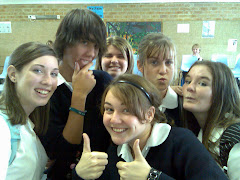Tuesday--continued The Road Not Taken. A comment on the human condition.
We will be working on the Stimulus texts in class in the following order:
Wednesday: Left for Dead; Pact with the Devil
Thursday: Another Country; The Road Less Traveled; The Knife (if time)
Please be prepared with written responses
Wednesday--finished The Road Not Taken. Did a comparative analysis of photos from Left for Dead & Pact with the Devil.
Looked at form and structure of Left for Dead, considering the possibility of emulating the structure in students' writing. Looked at Hall's notions of journey and the link between inner journey and outer journey: Journey is essential to life, to understanding oneself and one's place in the cosmos. Life is a journey, but journey is also life.
Students sent an email to Mr Sahlstrom and were meant to respond to the writing response question on the blog, but the computers were WAY slow.
Thursday--Research Resources for HSC English in the library with Mrs Smith. I will put links to online resources on the Salty Sally website.
Students used library computers to post comments to the writing response question on journeys. Students are encouraged to respond to each other's comments.
Students also asked to post a summary of their learning journal entries for at least two stimulus texts. You might also focus on commenting on a single quote or point in detail.
